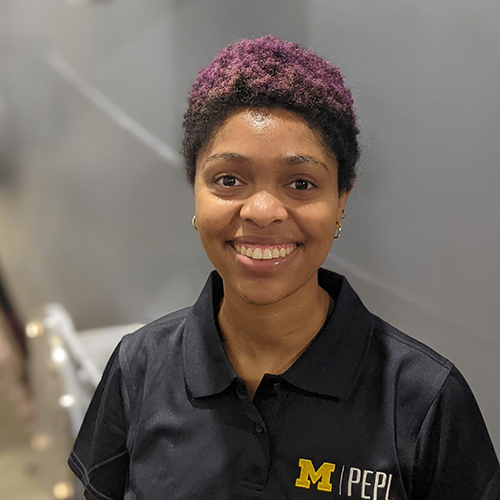The primary goal of the Spelman College physics program is to lay a strong foundation in the knowledge, practice, and applications of physics so students will be motivated for further studies and scientifically competent in all their endeavors. The courses strongly support majors in other fields, such as chemistry, computer science, mathematics and engineering.
While Asha Nurse-Clifford received her doctorate in the mechanics of solids from Brown University’s School of Engineering in 2010, it is Spelman she says that fortified her physics and mathematics abilities.
"Through coursework, I developed great analytical thinking skills as well as independent study habits and time management skills that greatly helped in graduate school and beyond,” said the Spelman summa cum laude 2005 physics graduate. “My knowledge on some subjects exceeded that of my peers, but more importantly, I was confident and articulate. I attribute this to our class presentations at Spelman.”
Lauding the small class sizes, labs, tutors, study groups, and the ability to attend conferences on and off campus and summer research programs, Nurse-Clifford credits the Spelman physics department’s individualized attention and dedicated professors for her success.
Meet Tenley Hutchinson-Smith and hear her talk about her inspiration.
African American Women in Physics
Join our Facebook page.
Join our Instagram page.
404-270-5851 | Fax 404-270-5853 | spelmanphysics@spelman.edu
Campus Location: Science Center Room 327
Mailing Address: Physics Department, Spelman College, Campus Box 1703
350 Spelman Lane, SW, Atlanta, GA 30314
Jeanette Lewis, Administrative Assistant
404-270-5851 | jlewis21@spelman.edu
Gebeyehu Abebe, Laboratory Coordinator
404-270-5847 | gebeyehuabebe@spelman.edu
Faculty Directory
New Jersey native, Madison Grace Allen, C'2021, is pursuing her Ph.D., at the University of Michigan Plasmadynamics and Electric Propulsion Laboratory (PEPL). Allen majored in physics and minored in mathematics. She broadened her experiences by attending professional conferences and completing research during her summers. Allen aspires to become a NASA administrator.
